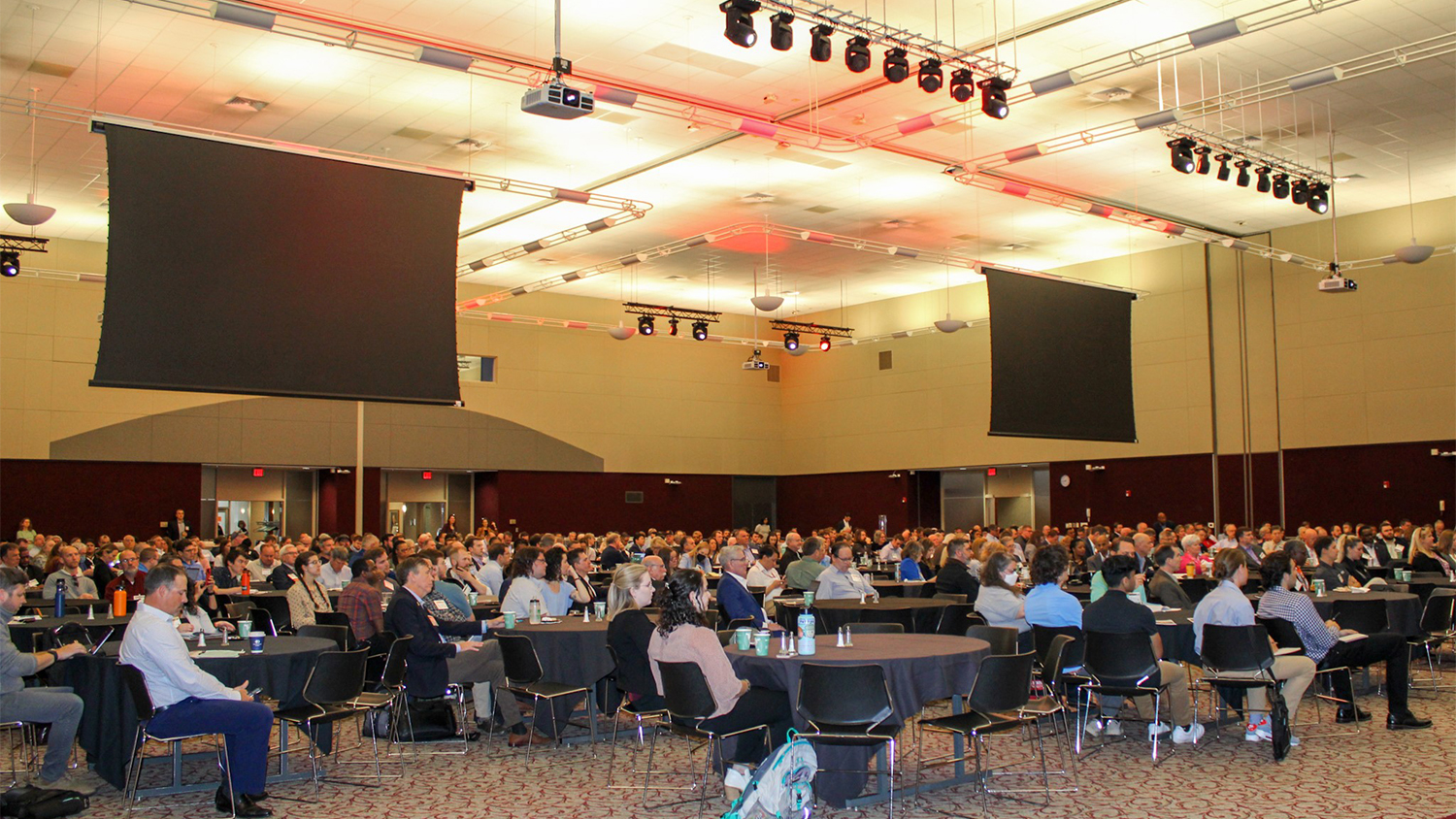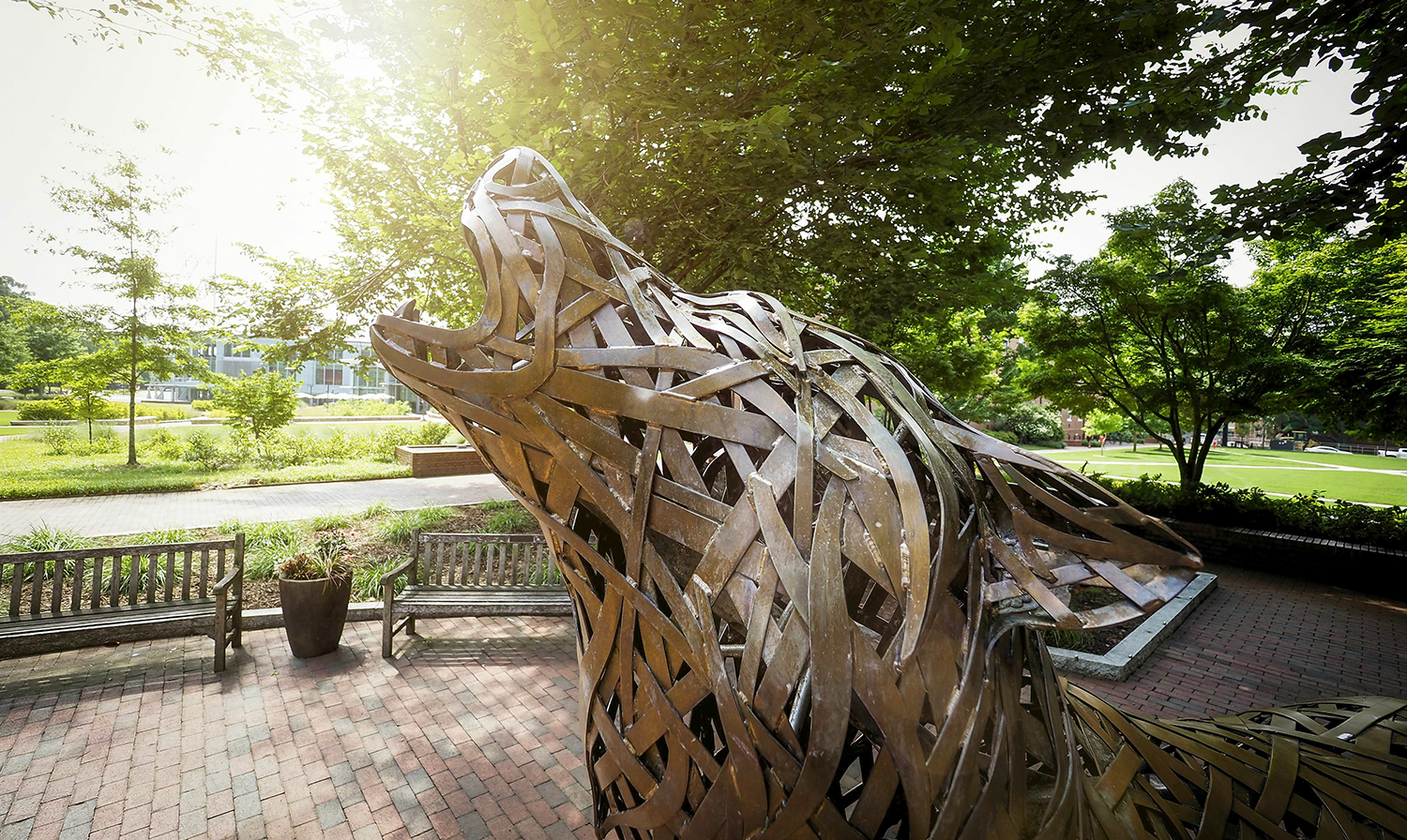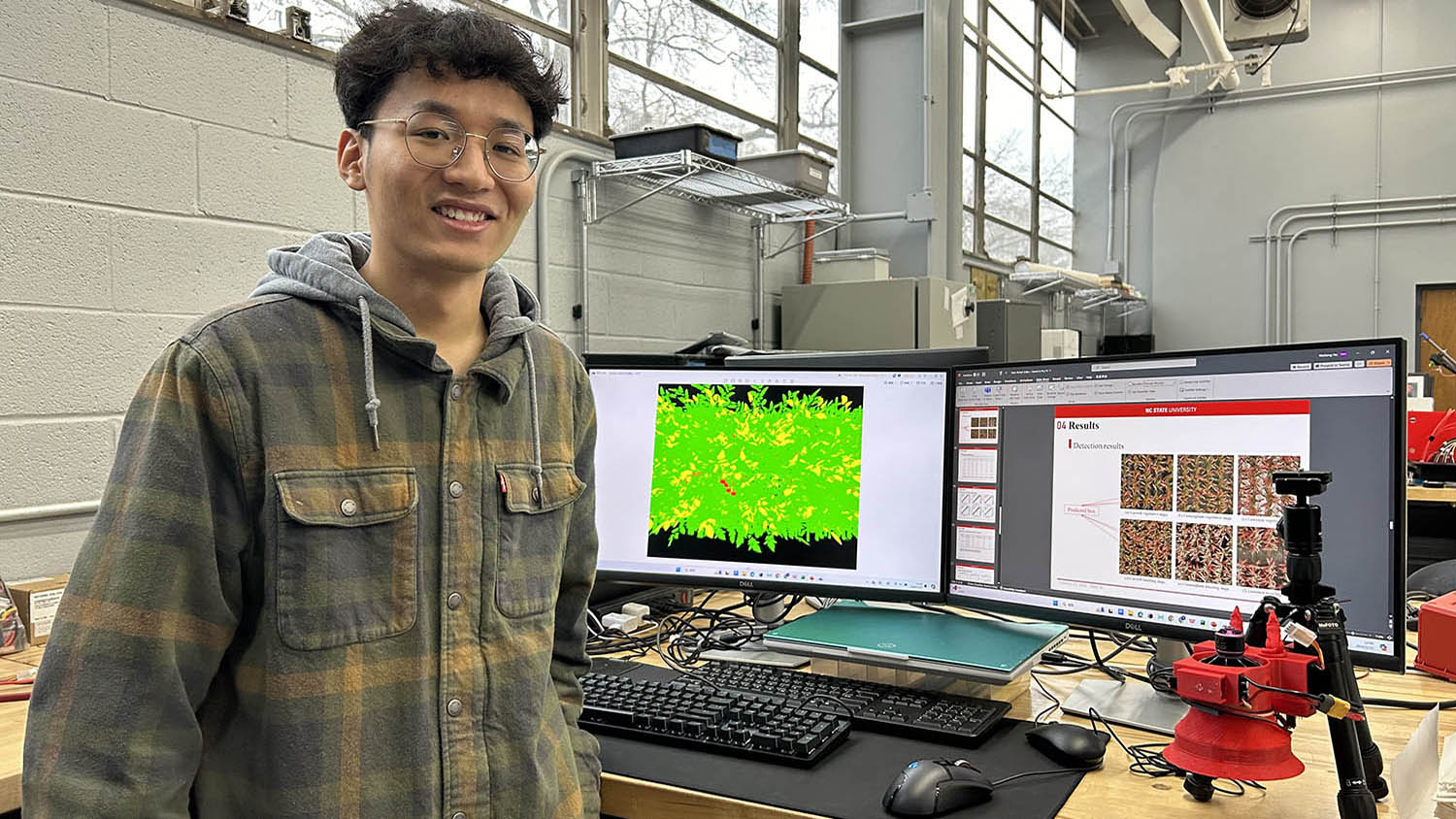Witherspoon Graduate Fellowship assists BME student in expanding research
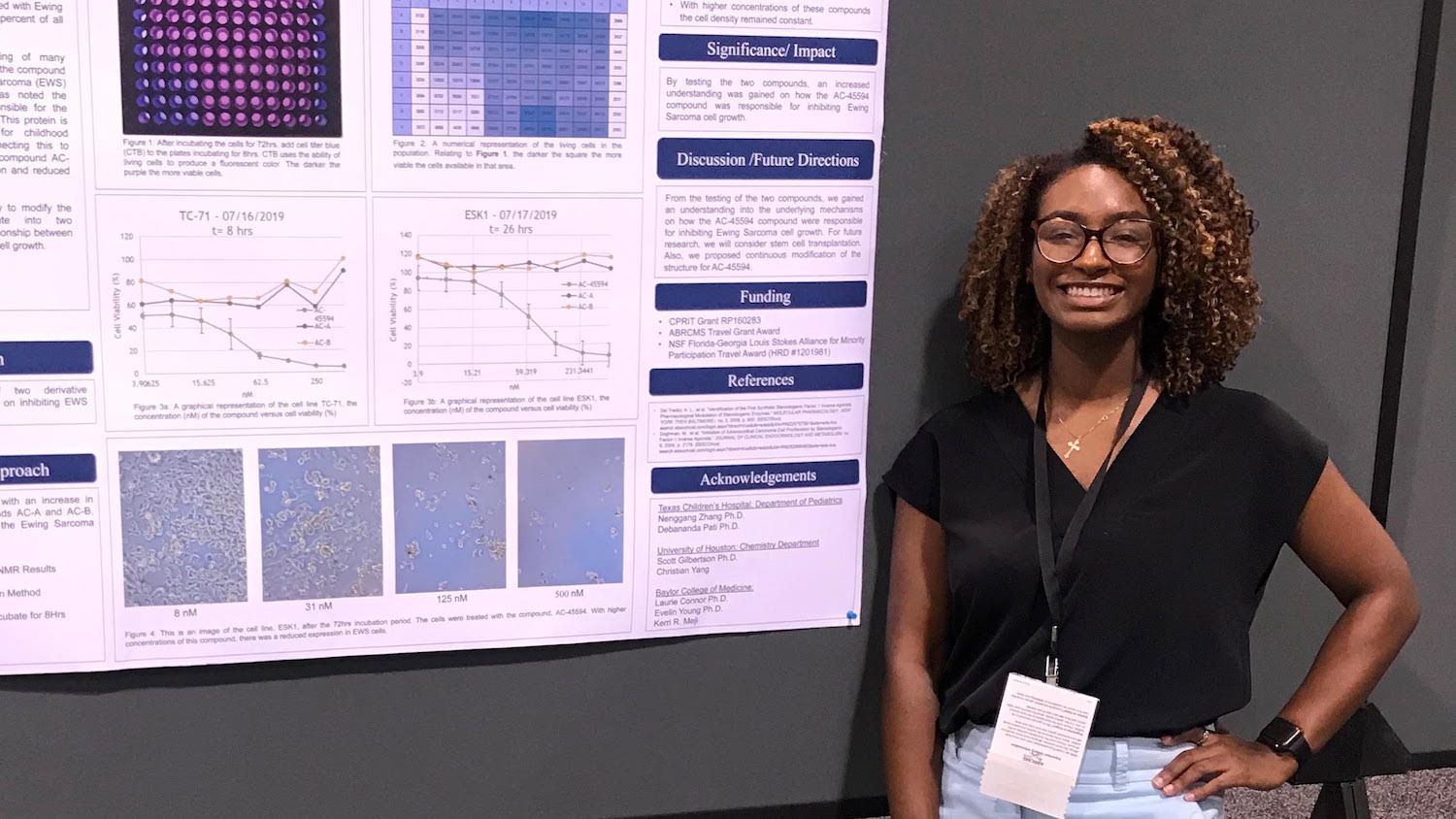
Aryssa Simpson, a second-year biomedical engineering graduate student, is one of seven recipients of the Witherspoon Graduate Fellowship.
The Witherspoon Graduate Fellowship recognizes graduate students who have demonstrated experience in or a commitment to supporting Black communities within and beyond NC State’s campus in honor of former student and professor Augustus M. Witherspoon. Candidates were selected by representatives from the Black Alumni Society and the Graduate School and were awarded $2,000.
Simpson was nominated by Ashley Brown, an assistant professor of biomedical engineering. Simpson works in Brown’s lab.
The importance of service was stressed early on in Simpson’s life by her mother and other mentors, and this encouraged her to be a part of UNC’s Initiative for Minority Excellence (IME). Additionally, Simpson serves as a senator for UNC’s Graduate and Professional Student Government where she assists in proofing and preparing legislation regarding community resolutions.
“It was really hard to get involved my first year in my program during the pandemic and I didn’t feel as integrated in the program if I didn’t serve,” said Simpson. “Getting involved now, especially in areas like student government, I feel my background as a Black biomedical engineer gives me a different and valuable perspective.”
Simpson, along with others, also spearheaded the Black BME Community, a group meant to bring together Black BME students to “expand diversity and minority education.”
“It is important to have diversity in STEM,” said Simpson. “A lot of minority students tend to stray away from engineering when there is not a lot of representation, so we hope to provide a supportive community for underrepresented students, especially in regards to racial disparities in addressing mental health; in a high performing department where excellence is expected, mental health can be a concern.”
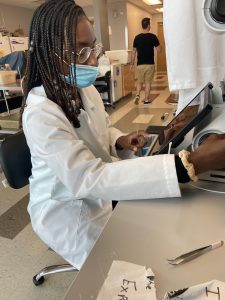 Simpson’s journey into the world of biomedical engineering began while imagining a career as a doctor.
Simpson’s journey into the world of biomedical engineering began while imagining a career as a doctor.
“I never saw myself as an engineer, I assumed I’d be a doctor,” said Simpson. “Growing up, when someone in my family was sick with cancer, I couldn’t understand why things were happening at the pace that they were and why there was no cure readily available. While a much more complicated question looking back on it now, I felt then and still feel the desire to do better.
“I also spent a lot of time reading research papers to try and encourage conversations around medicine because minority communities are often left out of the conversation and so they don’t understand how they can be a part of it, adding further complicatedness in medical settings.”
While attending the University of South Florida to earn her B.S. in chemical engineering, mentors pushed Simpson to participate in undergraduate research involving pediatric oncology to experience the research environment. This encouraged Simpson to pursue graduate study.
Making the move from Florida to North Carolina, Simpson was motivated to apply to the UNC / NC State Joint Department of Biomedical Engineering after receiving encouragement from a mentor and her network, and realizing the decision would be best for her academic growth.
Since arriving, Simpson has noticed that her presence in the program has inspired other potential students to look into the program as they reach out to her through social media platforms like LinkedIn to ask questions.
“It’s exciting to get to encourage other students to come,” said Simpson. “I was so surprised by all the students that have so far reached out to me over LinkedIn. They didn’t see a lot of diversity in these programs, but then they saw I was attending and that changed things.”
Simpson wants to use the award to finance conferences she is applying to. This includes the American Society of Matrix Biology’s biennial conference being held in St. Louis, MO where she hopes to present her research on cardiac fibrosis, a condition that disproportionately affects Black people, and the activation of the protein TGF-β (transforming growth factor beta).
“It’s an amazing feeling to show your research and to represent your department as a minority,” said Simpson. “To see so much innovation in research at these types of conferences is amazing and I feel blessed to attend these events.”
- Categories:
